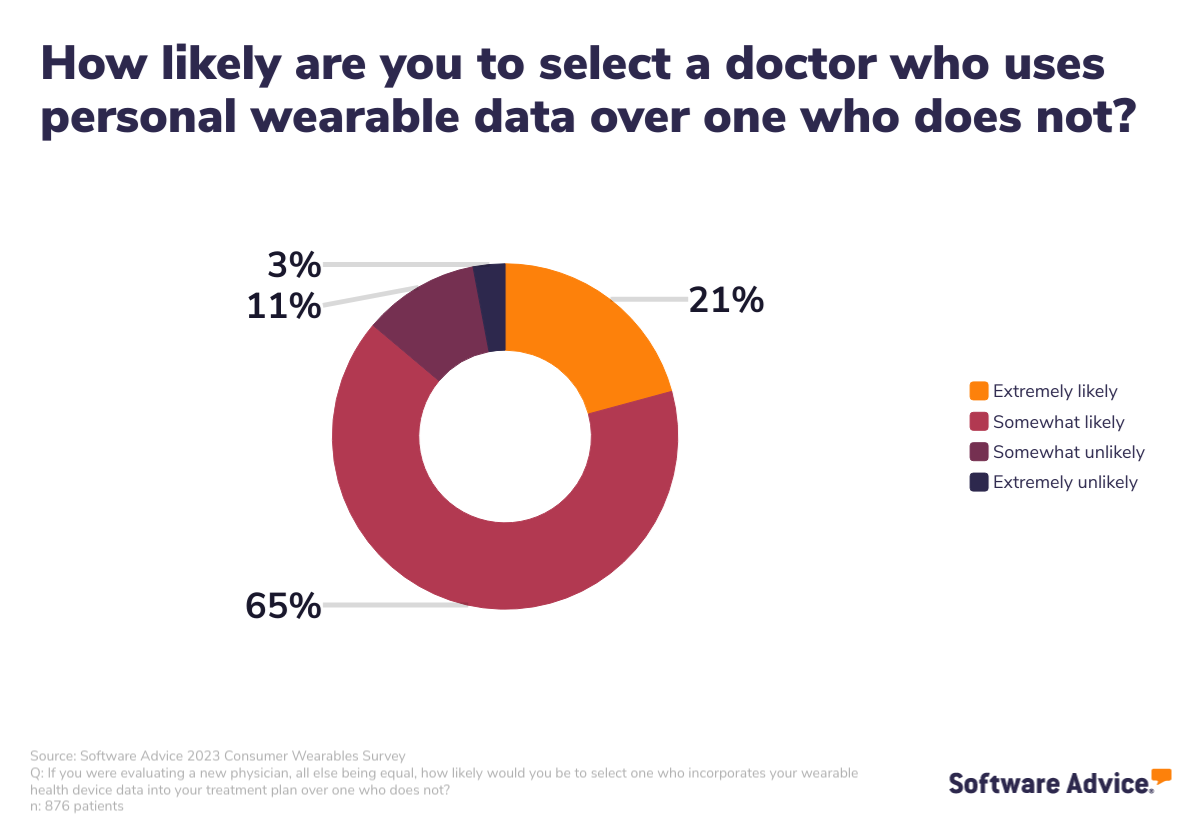Help patients close their rings - and keep them coming back

A recent 2023 Consumer Wearables Survey found the following:
91% of patients want to share data from their personal health tracking devices with doctors.
Patients would share this data with their doctors to take more active roles in their healthcare (82%) and improve health outcomes (77%).
87% of patients are more likely to choose a doctor who takes data from personal wearables into consideration over one who does not.
Patients are most comfortable sharing data with doctors in person during exams (76%) or providing data in intake paperwork before exams (73%).
To me, the impact of these statistics cannot be overstated. And they cause me to wonder, not for the first time, why more healthcare professionals don’t capitalize on this incredible opportunity to effectively engage patients in their healthcare and keep them as regular patients in their practice for many years to come.
Agency = Commitment = Accountability
91% of patients who participated in the survey reporting that they want to share wearables data with their doctors is staggering. And their reasons for doing so are to increase agency. No one likes feeling uncertain and out of control. Most people want to play an active role in their health and well-being (in fact, this is a core tenet of our Validic values), but struggle to understand exactly what to do and how to overcome barriers along the way. People are attracted to personal health trackers for exactly that reason - to reduce the uncertainty associated with what is happening in their bodies, to gain real answers with real data, and to regain control over their health and wellness journey.
Patients who wear personal health trackers are already engaged in their health and well-being, which means they are committed to change. And their desire to share personal health data with their healthcare care team means they are willing and ready to be held accountable, not just to themselves but to their doctor and care team members. I can’t think of a better patient engagement framework that will support lifelong healthy behavior change.
Hospital CMKOs: Stop paying for billboards and instead offer personal health data integration
Healthcare consumerism is here to stay, and most large health systems and physician practices recognize that “good enough” won’t cut it when it comes to patient acquisition, satisfaction, and retention. It is easier than ever for patients to choose another provider or health system because they received poor service, lacked robust digital tools, or experienced long wait times.
Research shows that 76% of patients leave their medical appointments frustrated, and 56% say a negative experience with a doctor has led them to find a different healthcare provider; 30% have done it more than once.
60% of younger patients say they would switch healthcare providers for a better digital experience, frustrated that healthcare has not kept pace with industries like banking and finance that have set the standard for price transparency and convenient booking, payment, and electronic communications.
Healthcare organizations collectively spend billions each year on advertising campaigns and other tactics to reach, engage, and retain healthcare consumers. And if they’re doing a good job of understanding and addressing the wants, needs, and frustrations of patients in their service areas, then they’ll also likely win their share of hearts, minds, and wallets. The 2023 Consumer Wearables Survey couldn’t be any clearer in what healthcare consumers want - integration of personal health data into their healthcare experience, with 86% being extremely or somewhat likely to choose a doctor who uses wearable data over one who does not.

Integrating health data is easier (and faster) than you think
Patients in the 2023 Consumer Wearables Survey reported they would like the ability to discuss their personal health data during in-person office visits using the app (76%), as well as have the data automatically uploaded into their electronic health record (51%). 73% said they would be willing to complete additional paperwork to provide their personal health data as part of the pre-registration process.
Fortunately, all of this is available today and easier than you might think. Validic’s API connects an ecosystem of more than 570 health and wearable devices to any third-party system with a place to put the data. This includes standard integrations with Epic and Oracle Health electronic health records that support remotely collected clinical data commonly used during healthcare visits - blood pressure, heart rate, pulse oxygen, blood glucose, and weight - as well as custom integrations using our publicly available SDKs and API to bring in other data types like temperature, sleep, nutrition, respiratory, and activity data.
I previously wrote about 5 ways doctors are using personal health data today to manage patient health, including as part of an intake process that does not require additional paperwork. With a connection to Validic’s ecosystem, data flows automatically into the electronic health or other system of record in advance of an office visit.
Patients share personal health simply by continuing to track it. They don’t need to open an app or manually sync data. It happens in the background.
Doctors can view the data simply by opening the patient’s medical record. The remotely collected health data from personal trackers will appear alongside similar data types collected during the office visit.
To learn more about integrating personal health data into your healthcare organization, contact us on our website or email hello@validic.com.
To stay informed on what we’re up to, consider joining our mailing list or follow us on LinkedIN and X.